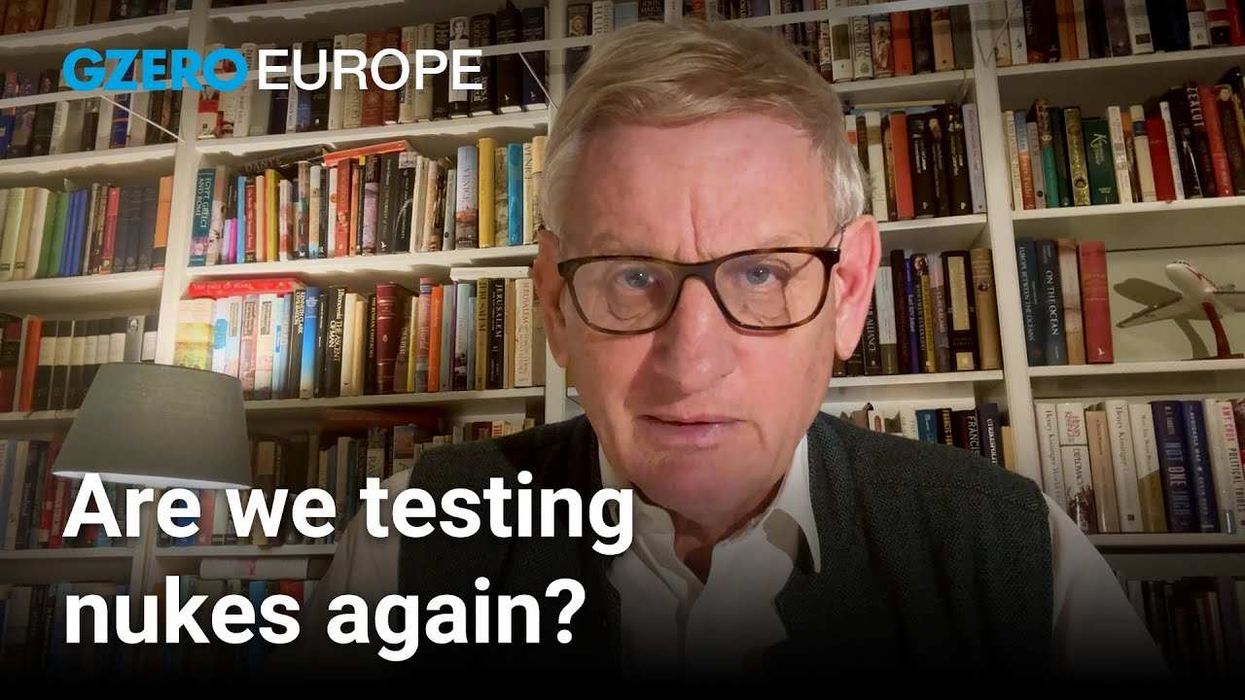GZERO Europe
Are we entering a new era of nuclear weapons testing?
Former Swedish Prime Minister Carl Bildt asks whether the world is sliding back into the dangerous era of open nuclear weapons testing, and it all started with a misunderstanding by US President Donald Trump.
Nov 07, 2025










